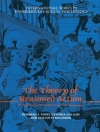This book presents a schoolwide model of instructional support designed to make the most of available time, resources, and personnel—one that is also fully compatible with other problem-solving models, such as response to intervention. The authors provide a comprehensive and cohesive framework for linking assessment and intervention. They show how to interweave evidence-based instruction with targeted professional development and other components that support improved learning outcomes for all K–8 students. Helpful tables describe dozens of research-based assessments and interventions in reading, writing, and math. In a large-size format with lay-flat binding to facilitate photocopying, the volume includes more than 20 reproducible worksheets and forms. The companion website features additional reproducibles and supplemental materials for use in conjunction with the book.This book is in The Guilford Practical Intervention in the Schools Series.
สารบัญ
I. Preparing for Implementation1. Introduction to the Systems-Oriented Plan for Academic Achievement 2. SOPAA Key Definitions, History, Components, and Roles3. Preliminary Considerations for SOPAA Implementation II. The Six SOPAA Components4. Initial Steps of the TAPS Process: Requests for Academic Support and Preparation for the Intervention Planning Meeting5. Secondary Steps of the TAPS Process: Intervention Planning, Follow-Ups, and Summative Reviews of Intervention Effectiveness6. Assessment for Instruction7. Maximizing Implementation through Targeted Professional Development 8. Maximizing Intervention Delivery through Recruiting and Training School Volunteers9. Obtaining Support for the SOPAA through Effective Communication with School Leaders10. Obtaining and Sustaining Support for the SOPAA through Effective Communication with Teachers11. Using the SOPAA with Multidisciplinary Co-Facilitators III. Additional Information and Guidance 12. Evidence-Based and Learner-Verified Intervention Programs in Reading, Mathematics, and Writing13. Case Illustrations of SOPAA Implementation14. Using the SOPAA to Support Graduate Students’ Training and Applied Experiences in Schools Epilogue Appendices
เกี่ยวกับผู้แต่ง
John C. Begeny, Ph D, is Associate Professor in the School Psychology Program at North Carolina State University and a psychologist in North Carolina. He was awarded the Ernest A. Lynton Citation for Distinguished Engaged Scholarship. Dr. Begeny’s research interests include academic consultation, methods to improve children’s reading abilities, international education, and strategies to narrow the gap between research and practice in education. Ann C. Schulte, Ph D, is Professor in the Department of Psychology at North Carolina State University. She serves on the editorial boards of multiple journals, including Journal of School Psychology, School Psychology Review, and Learning Disabilities Research & Practice. Dr. Schulte’s research focuses on school-based services for children with disabilities and improvement of achievement outcomes for this population. Kent Johnson, Ph D, is Founder and Executive Director of Morningside Academy, a laboratory school in Seattle, Washington. Morningside Academy investigates effective curriculum materials and teaching methods, and has provided training and consulting in instruction to over 125 schools and agencies in the United States and Canada. Dr. Johnson has published many articles and books on research-based curriculum and teaching methods.












